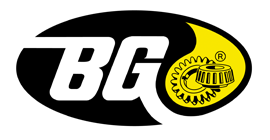
Archive for August 2021Singing a Different Tune (Up) (Tune Ups)Posted August 29, 2021 10:12 AMEngines required a lot more maintenance in earlier times. You'd have to have your spark plugs, wires, rotors, caps, distributor points, fuel and air filters changed periodically. There were mechanical adjustments of a vehicle's timing, dwell, spark gap and idle mixture, too. Unless you like to tinker with old cars, a lot of those terms won't mean much to you. That service was called a "tune up" back then, and you can see why. But now, computers have reduced the number of maintenance items, and a tune up is a whole lot different than it used to be. In fact, in some vehicle service facilities, that term is also a thing of the past. A tune up of today would more accurately be called simply periodic maintenance. Now, most vehicles still have spark plugs and wires, fuel filters, air filters and PCV valves, and they should be inspected tested and/or replaced at regular intervals. Your vehicle's manufacturer has made recommendations on how often that should be. But it depends on your driving habits. Do you regularly tow a trailer? Do you drive on dusty roads often? Are you driving mostly stop and go in the city? Depending on your answers, to those maintenance intervals might have to be more frequent. Your service advisor will likely remind you about those "must check" items such as spark plugs and wires, air filter and oxygen sensor. And now that the old-fashioned tune ups don't require you to take your vehicle in for maintenance as often, you can get the same benefit from scheduled oil changes or tire rotations. When your vehicle is in for those, a technician can keep an eye on your other systems (fuel, emissions, ignition) to make sure they are operating correctly. One thing to remember. When you take your vehicle in for regular service or a specific issue, don't ever hesitate to ask you service advisor to explain what's being done and why. Hey, "In Sync" may have been a boy band of an earlier era, but it's always good for you and your service advisor to be "in sync" when it comes to what maintenance is good for your vehicle. Auto Authority LLC Positive and Negative (Battery Care)Posted August 15, 2021 8:03 AMYou notice when your smartphone's battery starts to go weak on you. It runs out of juice faster than it did when it was new. Bet you pay attention to that pretty closely. Unfortunately, many of us don't pay the same attention to the battery in our vehicles. If your battery got you through the cold-weather months, you might be thinking you're all set until next winter. But you might be surprised to learn this: Hot weather is harder on a battery than cold weather. (Note: we're talking about a conventional vehicle here, not an all-electric, plug-in one.) The way your vehicle's battery holds a charge is that it has chemicals inside it, and they react with each other to produce electricity. A vehicle battery discharges electricity and then needs to be recharged. Unlike your smartphone that you plug in each night to charge, the way a vehicle's battery gets recharged is by using the mechanical energy of the engine. It's a pretty cool system that's been around for a while. An alternator changes the mechanical energy into electricity that then charges the battery. And your vehicle is designed to charge it just the right amount with a voltage regulator. If your battery constantly gets too much voltage, it could stop holding a charge. Another way a vehicle battery loses its ability to hold a charge is when it gets hot. In warmer weather, some fluids in your battery evaporate which can damage some of its internal components. Then, you've got a dead battery. Back to your smartphone for a second, it probably has a little indicator or maybe an app that shows you how healthy it is or how much charge it's holding. Well, your service repair facility has equipment that can test your vehicle's battery for the same things. If that test shows you need a new battery, then it's probably time to replace it. A technician can also check to see your battery is being charged at the correct rate. If you have a battery that is not sealed, a technician can check to see it needs more water added to it. The technician will also make sure dirt or other contaminants aren't acting as electrical conductors and discharging the battery. Plus, your battery's terminals may need cleaning. Most people just forget about their vehicle's battery until there's a big problem with it. Here's one rule of thumb: expect a battery's life to be about 5 years. Just like you wouldn't want your smartphone to leave you without any way to make phone calls or send texts, you wouldn't want your vehicle to leave you stranded with no way to start it, would you? When it comes time to make that new battery choice, your service advisor can offer you some good options, taking into account the climate you drive in, what you use your vehicle for and what your budget is. Hey, your smartphone's battery is all charged up. How about calling your service advisor for an appointment right now?
Weather Station on Wheels (Vehicle Sensor Maintenance)Posted August 8, 2021 7:37 AMYou probably never thought about it, but your vehicle is like a rolling weather station. It can check the outside temperature, let you know when the roads are slippery and help you deal with rain. And how it does all those things is pretty cool. First, just like any weather station, a vehicle has sensors that measure the driving and weather conditions you find yourself in. Some of those sensors can control computerized systems in your vehicle to react to the weather. It depends on whether you have a 2-wheel, 4-wheel or all-wheel drive vehicle how those sensors will respond. Let's start with temperature. Most vehicles now have a thermometer that measures the temperature outside. It's usually in the front, and likely will tell you on the instrument panel what the outside temperature measures. But a temperature sensor will also tell your vehicle's computers to turn on or off certain systems like the heating or air conditioning. If your ambient temperature sensor isn't working right, some symptoms are a malfunctioning automatic A/C or a temperature display that is way different than the app on your phone says it should be. Your vehicle will also have sensors that measure your speed at each wheel. They work with an onboard computer to measure slippage in any of the wheels so traction control and antilock brakes work correctly in case of slick roads. Your vehicle can measure something called longitudinal and latitudinal acceleration, and it uses a yaw sensor to do it. That helps it determine if you might be in an oversteering or understeering situation. It's important because it works with your vehicle's brakes to apply stopping power to keep you in control. A steering wheel sensor tells the vehicle's computers what the driver is doing with the wheel. It also can work with those wheel sensors to measure how slippery the roads are, whether it be due to a wet (rain) or granular (gravel or sand) surface. By sending different torque or braking to each wheel, it helps the driver maintain control. More and more vehicles now have a rain sensor that can turn on the wipers automatically when they measure precipitation on the windshield. So, you're driving your own weather station, and making sure all this data is coming in properly depends on how each component is working. Regular service and maintenance on these systems is important to make sure they can do their job. Your rolling weather station can't predict the weather, but it can sure help you deal with it, so help it do its job right.
Straight Ahead (Wheel Alignment)Posted August 1, 2021 8:13 AMIf every road was straight and smooth, we wouldn't have to worry much about wheel alignment. But they're not, so we do. Hitting potholes or driving on rough pavement can knock your vehicle out of alignment and you'll notice it in one of several ways. Your steering wheel may not be centered when you're driving straight ahead, or your vehicle may pull to one side. You may find your tires wearing on one side or they may squeal. All are signs that could point to you needing an alignment. Your wheels should be perpendicular to the road and parallel with each other. If not, your tires will wear out faster and your vehicle won't go straight on a level straightaway. In alignment, there are several factors that must be checked. One is camber. Your wheels should be straight up and down if you look at them from the front. If not, you'll wear your tires unevenly on one side. Another factor is caster, the angle of the steering pivot. Most vehicles have what's called positive caster, when the top of the steering pivot leans toward the rear. Proper caster balances steering effort, stability on the highway and cornering. You may have heard the term "toe" in reference to your wheels. If you looked at your front wheels from straight above, for example, imagine your wheels were your feet. If you were to turn your toes in toward each other, that would be toeing in. The toe of your vehicle should be set to manufacturer's specifications so your vehicle handles well and doesn't prematurely wear out tires. It's a good idea to have your alignment checked periodically since it can get knocked out by one hard knock or a lot of little knocks. It's not just about tire wear, it's about ride comfort and safe handling. You may say a vehicle aligned just feels divine.
| ||
SearchArchiveNovember 2011 (5)December 2011 (4) January 2012 (5) February 2012 (3) March 2012 (5) April 2012 (4) May 2012 (4) June 2012 (5) July 2012 (5) August 2012 (4) September 2012 (4) October 2012 (4) November 2012 (5) December 2012 (4) January 2013 (4) February 2013 (5) March 2013 (4) April 2013 (4) May 2013 (4) June 2013 (4) July 2013 (5) August 2013 (4) September 2013 (4) October 2013 (4) November 2013 (4) December 2013 (5) January 2014 (4) February 2014 (4) March 2014 (4) April 2014 (4) May 2014 (5) June 2014 (4) July 2014 (5) August 2014 (4) September 2014 (5) October 2014 (4) November 2014 (4) December 2014 (5) January 2015 (4) February 2015 (4) March 2015 (4) April 2015 (5) May 2015 (2) June 2015 (6) July 2015 (4) August 2015 (4) September 2015 (4) October 2015 (5) November 2015 (4) December 2015 (3) February 2016 (2) March 2016 (4) April 2016 (4) May 2016 (5) June 2016 (4) July 2016 (5) August 2016 (4) September 2016 (4) October 2016 (5) November 2016 (4) December 2016 (4) January 2017 (5) February 2017 (4) March 2017 (4) April 2017 (5) May 2017 (4) June 2017 (4) July 2017 (4) August 2017 (5) September 2017 (3) October 2017 (5) November 2017 (4) December 2017 (3) January 2018 (5) February 2018 (3) March 2018 (4) April 2018 (5) May 2018 (3) June 2018 (4) July 2018 (5) August 2018 (4) September 2018 (5) October 2018 (4) November 2018 (4) December 2018 (1) March 2019 (3) April 2019 (33) May 2019 (4) June 2019 (5) July 2019 (4) August 2019 (4) September 2019 (5) October 2019 (4) November 2019 (4) December 2019 (5) January 2020 (5) February 2020 (4) March 2020 (5) April 2020 (2) May 2020 (2) June 2020 (1) July 2020 (1) August 2020 (5) September 2020 (4) October 2020 (4) November 2020 (5) December 2020 (4) January 2021 (6) February 2021 (4) March 2021 (4) April 2021 (4) May 2021 (5) June 2021 (4) July 2021 (4) August 2021 (5) September 2021 (4) October 2021 (5) November 2021 (3) December 2021 (5) January 2022 (6) February 2022 (4) March 2022 (4) April 2022 (4) May 2022 (5) June 2022 (4) July 2022 (5) September 2022 (4) October 2022 (5) November 2022 (4) December 2022 (4) January 2023 (5) February 2023 (4) March 2023 (4) April 2023 (5) May 2023 (4) June 2023 (4) July 2023 (5) August 2023 (4) September 2023 (3) October 2023 (1) January 2024 (1) February 2024 (4) | CategoriesAir Conditioning (18)Alignment (16)Alternator (6)Auto Safety (6)Automotive News (11)Battery (20)Brake Service (4)Brakes (22)Cabin Air Filter (8)Check Engine Light (6)Cooling System (19)Customer Detective Work (1)Dashboard (3)Diagnostics (5)Diesel Maintenance (2)Differential Service (3)Drive Train (9)Emergency Items (1)Engine Air Filter (2)Exhaust (12)Fluids (19)Fuel Economy (10)Fuel Pump (1)Fuel Saving Tip: Slow Down (2)Fuel System (47)Headlamps (7)Inspection (11)Keys to a long lasting vehicle (4)Maintenance (60)Monitoring System (3)Oil Change (7)Older Vehicles (4)Parts (8)PCV Valve (2)Safe Driving (1)Safety (7)Serpentine Belt (6)Service Intervals (9)Service Standards (13)Shocks & Struts (10)Shocks and Struts (1)Spark Plugs (2)Steering (14)Suspension (3)Timing Belt (6)Tire Pressure Monitoring System (1)Tire Rotation and Balancing (4)Tires (10)Tires and Wheels (42)TPMS (3)Transfer Case Service (1)Transmission (11)Trip Inspection (4)Warranty (1)Water Pump (1)What Customers Should Know (81)Wheel Bearings (2)Windshield Wipers (9)Winter Prep (7)Winter Tires (1) | |
Partners








What our clients are saying about us
We have established longterm and stable partnerships with various clients thanks to our excellence in solving their automotive needs!
Absolutely the best mechanic I have ever been to in my 40 years on this planet. Honest, trustworthy, and reliable. I will definitely be back.

These Guys (and Gals!) are great. Love them. Trust them. If you are looking for a REPUTABLE mechanic for your car or truck, look no more. Just go there and see what I mean.

